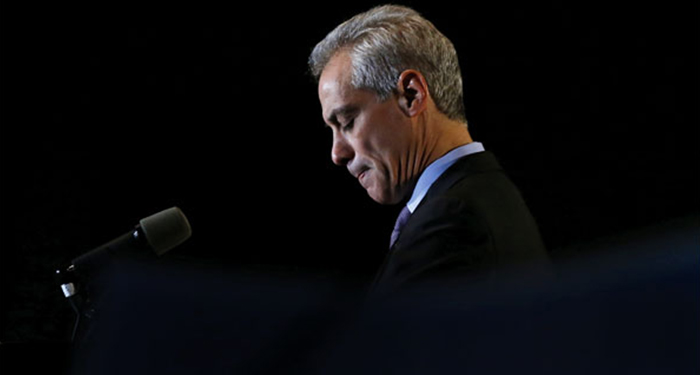
Chicago Mayor Rahm Emanuel pauses as he speaks to supporters after he was unable to win a majority vote in the city’s Feb. 24 mayoral election. He now faces Jesus “Chuy” Garcia, a candidate backed by the Chicago Teachers Union, in an April runoff.
—Charles Rex Arbogast/AP
Education Week quotes Pauline Lipman, former GCI research scholar and professor of educational policy studies, on discontent with Mayor Rahm Emanuel’s school policies among Chicago teachers and parents.
Pauline Lipman, a professor of educational policy studies and the director of the Collaborative for Equity and Justice in Education at the University of Illinois, Chicago, said that the mayoral and aldermanic runoffs and the overwhelming approval of the nonbinding school board question all demonstrated that Mr. Emanuel and the majority of city residents have fundamentally different philosophies about the future of education in the city.
It’s a divide Mr. Emanuel could not overcome even with a campaign war chest of more than $13 million, the advantage of incumbency, and endorsement from high-powered friends such as his former boss, President Barack Obama, who visited Chicago to provide a last-minute boost, according to Ms. Lipman.
“We’re seeing a growing education movement in Chicago that’s flexing its political muscle,” Ms. Lipman said, along with the “growing power of parents, allied with the Chicago Teachers Union, in supporting an alternative to Mayor Emanuel.”


